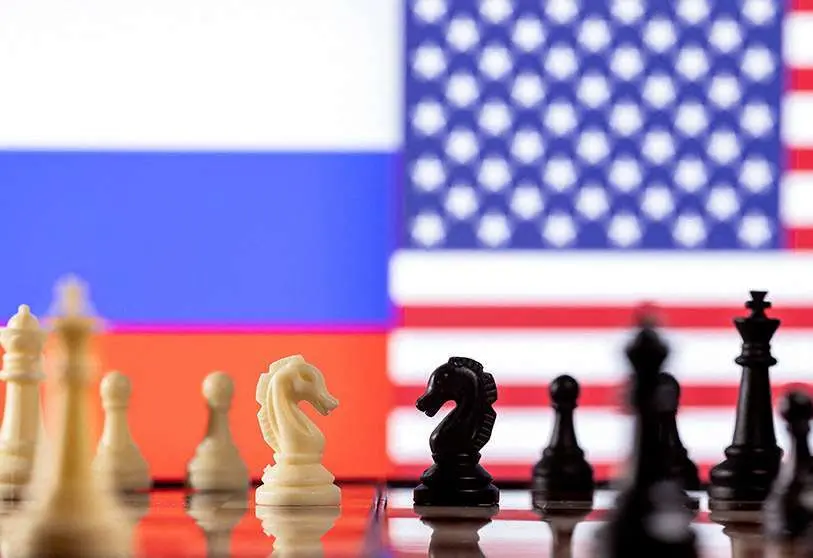Ukraine and the new global chessboard

The war in Ukraine is defining a new architecture of global power between the decline of US and European hegemony and the rebirth of the imperial power of Russia and China. US and British policy has been to unite the forces of NATO and the European Union against Russia and China. But one of the worst mistakes has been to underestimate the Russians and believe that their interests are not the same as those of the Chinese in the quest to reconfigure global power. The Russians and the Chinese after the 4 February summit strengthened their economic and military alliances and cooperation policies and sent a clear message that their rivalries are with the United States, not Europe.
In this contest for international dominance, each power seeks to shape its influence in its own backyard. Russia in Eastern Europe, Central Asia and the Middle East. China in the Indo-Pacific region, but both powers are united in the development of China's New Silk Road project of imperial domination.
It is clear that with the galloping decline of the United States and Europe, the pendulum is swinging from the West to Asia. China, Russia and India are projected as the powers contesting that power from the US and Europe.
Ukraine is the scene of a cruel and multidimensional war: warlike, satellite, communications, economic and financial, where Russia, the United States and China vie for global power-sharing. A conflict in which Ukraine and Europe are mere tokens in a mosaic of political, military, economic, financial, arms and strategic interests of the two blocs.
A war that has been simmering for three decades due to the systematic doctrine of expanding the influence of the United States and its NATO military apparatus towards Russia's leaks. Moscow for years watched with concern as the United States eroded its spheres of influence with the incorporations of 14 countries that formed the former Soviet Union's Iron Curtain.
Russia's gamble over the past two decades has been to seek to regain the global influence it lost with the disintegration of the Soviet Union. Its imperial reconstruction policy has had three main axes: economic, military and geostrategic strengthening with the expansion of its energy policy in the world. Russia, with its proposal to the United States to renegotiate its security and that of Europe, aims to share control of Europe with the White House and thus regain its former dominions in Eastern Europe.
War breaks out when the United States decides not to negotiate the division of Europe and does not give up its strategic interests in Eastern Europe and Central Asia. The United States as a power is not willing to give up even a millimetre of its global hegemony. Nor are the Russians and Chinese willing to cede their spheres of influence to the Americans.
It is therefore interesting to examine how countries voted at the UN against Russia's invasion of Ukraine. Of the 193 countries, 176 voted, of which 94 voted with the US to condemn Russia, 24 voted against condemnation and 58 abstained. The key to those condemnations is not how many countries voted to condemn Russia for its ruthless invasion of Ukraine, but how global and emerging powers voted.
Among the 82 countries that voted against condemnation and those that abstained from voting are the keys to understanding how the two big blocs are shaping up in this new world order. NATO and EU members, Australia, other countries in Asia, Africa, Latin America and the Caribbean aligned themselves with the US, but with the exception of the European powers, Australia and Canada, the other countries do not carry much weight in international politics.
Meanwhile, Russia had the stealthy support of three Asian nuclear powers: China, India and Pakistan, and a large part of the countries of the Islamic and Arab world led by regional powers such as Iran, Saudi Arabia and Egypt. This is an issue that is little analysed due to the cascades of misrepresentations and manipulations of information. The vast majority of African countries are also aligned, especially the three main African powers: Egypt, Nigeria and South Africa, and in Latin America Brazil, Mexico and Argentina. In conclusion: the war in Ukraine is marking the end of globalisation and the rise of regionalism.
@j15mosquera

